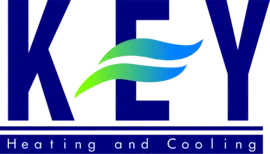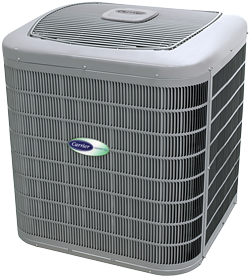Tallahassee homeowners know that keeping a home comfortable takes more than just adjusting the thermostat. Between the city’s warm, humid summers and cool, damp winters, your HVAC system—especially your heat pump—works hard all year long. Because a heat pump both heats and cools your home, it’s constantly in use, making proper maintenance essential to performance, comfort, and energy efficiency.
Whether you’re new to heat pump ownership or have relied on one for years, understanding how to care for it can make a big difference. Below, we’ll walk through practical heat pump maintenance tips specifically tailored for Tallahassee’s climate, helping you avoid unexpected breakdowns and keep your home feeling comfortable year-round.
Understanding How Heat Pumps Work in Tallahassee Homes
Before jumping into maintenance tips, it helps to understand how your heat pump functions. Unlike a traditional HVAC system that uses separate units for heating and cooling, a heat pump does both.
In cooling mode, it extracts heat from inside your home and transfers it outdoors—similar to an air conditioner. In heating mode, it reverses the process, pulling heat from the outside air (even when it’s cool) and moving it inside.
Because of this dual function, heat pumps typically run for longer periods throughout the year. According to the U.S. Department of Energy, the average heat pump can transfer up to three times more energy than it consumes in electricity, making it one of the most efficient heating and cooling options available—if it’s properly maintained.
Why Regular Heat Pump Maintenance Matters
Routine maintenance isn’t just about comfort—it’s about protecting your investment. Here’s why it’s so important:
-
Energy Efficiency: A well-maintained heat pump can operate up to 25% more efficiently than a neglected one, according to Energy.gov.
-
Extended Lifespan: Regular servicing can add years to your system’s lifespan, delaying costly replacements.
-
Better Indoor Air Quality: Clean filters and coils reduce airborne dust, pollen, and other allergens common in Florida’s humid environment.
-
Fewer Repairs: Maintenance helps identify small problems before they turn into expensive breakdowns.
-
Consistent Comfort: A properly serviced system maintains steady temperatures throughout your home, no matter the weather outside.
For Tallahassee homeowners, where humidity, salt air, and seasonal storms can affect HVAC systems, regular care is especially vital.
Change or Clean Air Filters Frequently
Your heat pump’s air filter is its first line of defense against dust, pollen, and debris. When filters become clogged, airflow is restricted, forcing the system to work harder and use more energy.
Tip: Check your air filters at least once a month and replace or clean them every 1–3 months, depending on your home’s conditions.
Homes near wooded areas or in high-pollen neighborhoods in Tallahassee may need more frequent changes. If you have pets or family members with allergies, upgrading to a high-efficiency filter can also make a noticeable difference in air quality.
Keep the Outdoor Unit Clear and Clean
Because Tallahassee experiences frequent rain and lush plant growth, it’s easy for debris to collect around your outdoor unit. Leaves, branches, and grass clippings can block airflow and reduce efficiency.
Maintenance Steps:
-
Trim vegetation at least 2 feet around the unit.
-
Gently rinse the coils with a garden hose (never a pressure washer).
-
Clear away debris after storms or lawn care.
This small step helps your system breathe easier and maintain optimal heat transfer during both cooling and heating cycles.
Inspect and Clean the Coils
The evaporator and condenser coils inside your system can collect dust and grime over time. Dirty coils can reduce your heat pump’s ability to absorb and release heat, leading to higher energy bills.
According to the U.S. Department of Energy, dirty coils can reduce system efficiency by up to 30%.
Best Practice: Schedule professional coil cleaning once or twice a year, typically during spring and fall tune-ups. Between visits, keep indoor and outdoor areas dust-free to prevent buildup.
Check the Refrigerant Levels
Refrigerant is the lifeblood of your heat pump—it’s what allows the system to move heat in and out of your home. Too much or too little refrigerant can lead to poor performance, higher utility costs, and potential compressor damage.
Low refrigerant levels can be caused by leaks, which are not uncommon in older systems. If you notice your system isn’t cooling or heating efficiently, or you hear hissing sounds from the unit, contact a professional immediately.
Important: Only a certified HVAC technician can safely check and adjust refrigerant levels, so this task should always be left to the pros.
Clean and Inspect the Ductwork
Even if your heat pump is in great shape, leaky or dirty ducts can compromise performance. In Tallahassee’s humid environment, ducts can develop condensation, leading to mold and mildew growth if not properly sealed and insulated.
Why It Matters: According to the EPA, leaky ducts can reduce HVAC efficiency by up to 20%.
Maintenance Tips:
-
Have ducts inspected every few years for leaks or buildup.
-
Consider professional duct cleaning to remove dust and allergens.
-
Seal any visible gaps or holes with mastic sealant or metal tape—not standard duct tape.
Well-maintained ducts improve airflow, boost efficiency, and promote better indoor air quality.
Monitor Your Thermostat Settings
Smart thermostat management is one of the easiest ways to extend your heat pump’s lifespan. Frequent temperature swings cause the system to cycle more often, leading to wear and tear.
Tips for Efficient Use:
-
Set your thermostat to a consistent, moderate temperature.
-
Use a programmable thermostat to adjust settings while you’re away.
-
Avoid setting the temperature drastically higher or lower than usual—it won’t heat or cool your home faster, but it will strain the system.
For Tallahassee homes, setting your thermostat a few degrees higher in summer and lower in winter can significantly reduce energy costs without sacrificing comfort.
Check the Condensate Drain
Heat pumps generate moisture as they operate. The condensate drain is responsible for removing this water safely. Over time, algae or debris can clog the drain line, leading to water damage or musty odors.
Maintenance Steps:
-
Inspect the drain line periodically for blockages.
-
Pour a mixture of warm water and vinegar through the line to prevent algae buildup.
-
If you notice standing water near your indoor unit, schedule a professional inspection.
Keeping the drain line clear helps maintain healthy humidity levels and prevents unwanted water leaks.
Schedule Biannual Professional Maintenance
While homeowners can handle basic maintenance, a professional HVAC technician can perform deeper inspections and adjustments that protect your system long-term.
A comprehensive tune-up usually includes:
-
Checking electrical connections and components.
-
Testing airflow and refrigerant charge.
-
Cleaning coils and drain lines.
-
Calibrating thermostats.
-
Inspecting belts, motors, and fan blades.
Most experts recommend scheduling maintenance twice a year—once in spring before the cooling season and once in fall before the heating season. In Tallahassee, where systems often run year-round, this regular attention is crucial for keeping energy bills manageable and avoiding unexpected failures.
Watch for Warning Signs of Trouble
Your heat pump will often let you know something’s wrong before it stops working completely. Pay attention to these signs:
-
Unusual noises such as rattling, buzzing, or grinding.
-
Uneven temperatures between rooms.
-
Rising energy bills despite normal usage.
-
Short cycling (system turns on and off frequently).
-
Weak airflow or warm air during cooling cycles.
Addressing these issues early can prevent more serious damage and costly repairs down the line.
Improve Home Insulation and Air Sealing
Even a perfectly maintained heat pump can’t perform efficiently if your home leaks conditioned air. Tallahassee’s warm, humid air can infiltrate through cracks and poorly insulated areas, making your system work overtime.
Quick Fixes:
-
Seal gaps around windows and doors with weatherstripping.
-
Add insulation to attics and crawl spaces.
-
Install insulated window treatments to reduce heat gain.
According to the U.S. Department of Energy, proper insulation and sealing can reduce heating and cooling costs by up to 20%. It’s a simple, cost-effective way to support your heat pump’s performance.
Consider Upgrading to a Variable-Speed System
If your current heat pump is older or struggling to maintain comfort, upgrading to a variable-speed or inverter-driven system can make a major difference.
These advanced units adjust their output based on real-time demand, maintaining consistent temperatures while using less energy. According to ENERGY STAR, high-efficiency variable-speed heat pumps can save homeowners hundreds of dollars per year in energy costs compared to older, single-stage systems.
When paired with proper maintenance, these systems deliver smoother operation, quieter performance, and enhanced comfort in Tallahassee’s changing weather conditions.
How Tallahassee’s Climate Affects Heat Pump Maintenance
Tallahassee’s climate is classified as humid subtropical, with average highs around 91°F in summer and lows around 42°F in winter. The area experiences high humidity for much of the year, frequent thunderstorms, and occasional cold snaps.
This combination of heat, moisture, and seasonal rain can take a toll on outdoor HVAC equipment. Components like coils, fan motors, and electrical connections are more vulnerable to corrosion and debris buildup.
To combat these effects:
-
Schedule routine cleanings to remove dirt and moisture residue.
-
Ensure outdoor units are installed on elevated pads to prevent flooding during heavy rain.
-
Use surge protection to guard against power fluctuations caused by thunderstorms.
By tailoring your maintenance plan to the local environment, you’ll reduce the risk of weather-related damage and keep your system operating efficiently all year long.
The Long-Term Benefits of Heat Pump Maintenance
Routine maintenance isn’t just about avoiding breakdowns—it’s about maximizing comfort and minimizing waste. Some key long-term benefits include:
-
Lower Energy Bills: A clean, efficient system uses less electricity.
-
Reliable Comfort: Fewer temperature fluctuations and faster heating/cooling response.
-
Environmental Impact: Efficient heat pumps reduce carbon emissions by cutting electricity use.
-
Peace of Mind: Knowing your system is reliable makes it easier to relax at home, regardless of the weather.
According to the EPA, maintaining HVAC equipment properly can reduce household energy use by up to 20%, saving both money and environmental resources.
For Heat Pump Services in Tallahassee, FL, Contact Key Heating and Cooling Today
Your home’s comfort depends on the performance of your heat pump—and keeping it running efficiently takes consistent care. Whether you need a seasonal tune-up, a professional inspection, or help troubleshooting an issue, Key Heating and Cooling is here to help.
Our team understands the unique demands of Tallahassee’s climate and provides expert maintenance, repair, and installation services designed to keep your system in top shape year-round. We’re committed to helping local homeowners enjoy dependable comfort, better air quality, and improved energy efficiency.
Don’t wait for problems to arise—schedule a maintenance visit with Key Heating and Cooling today and experience the difference regular care makes.




